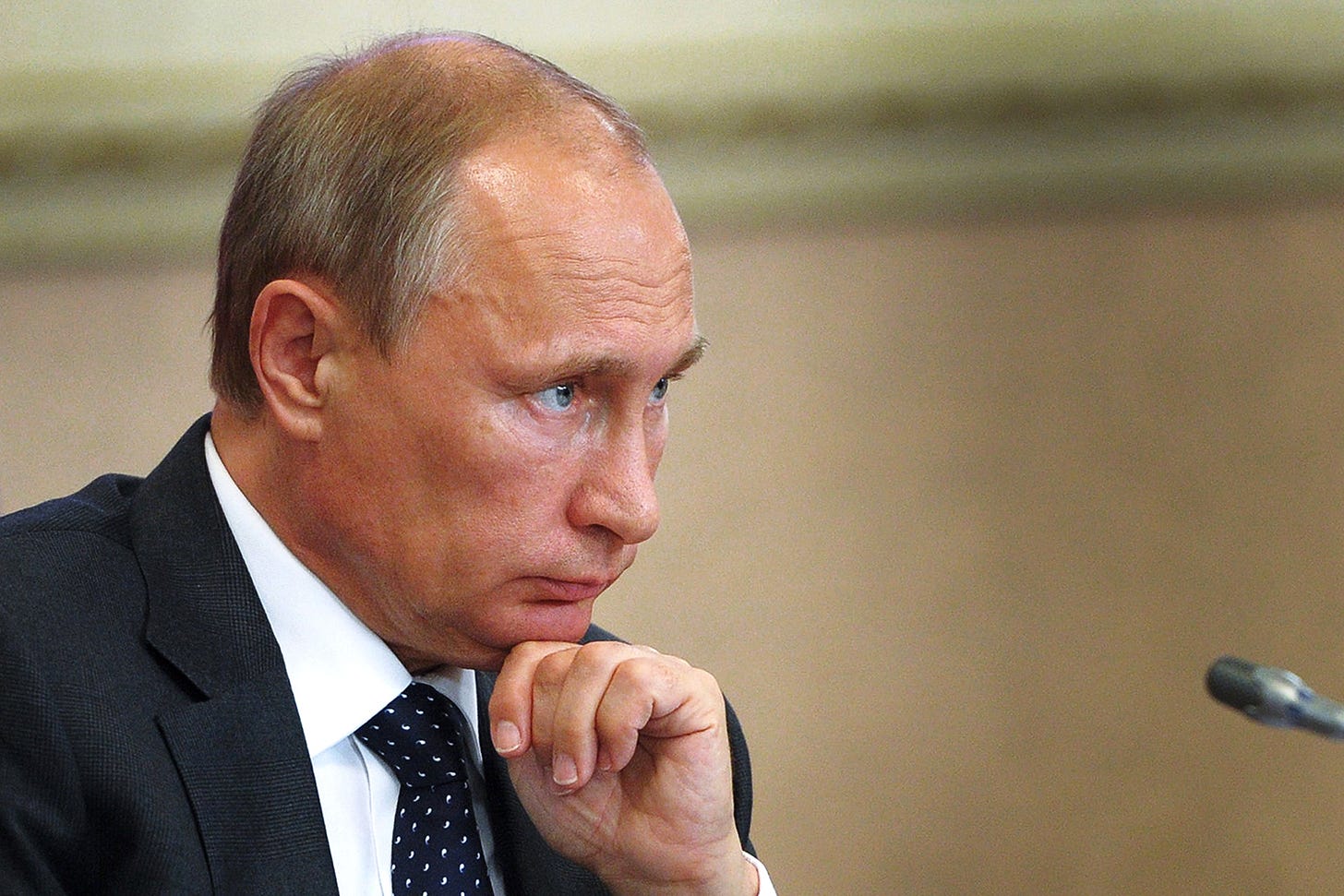With Russia possibly on the verge of escalating the Donbas War, it’s worth repudiating Vladimir Putin’s justifications for invading Ukraine.
This summer, Putin explained at length why he believes Russia and Ukraine are inseparable. His is a selective version of history that is illuminating insofar as it reveals Russian attitudes toward Belarusians, Ukrainians and other Slavic peoples in Eastern Europe; it’s not an excuse for denying Ukrainians their right to self-determination.
Security dilemma
Putin blames the West for attempting to “divide and rule” the Russian-speaking world by supporting the national (although he wouldn’t use that word) aspirations of former Soviet republics and satellite states.
But Russia created its own security dilemma: countries in Eastern Europe wouldn’t be desperate to join the EU and NATO if it had been able to respect their independence.
He argues Ukraine was “dragged” into conflict by America and Europe, which rejected Russia’s “calls for dialogue”.
Except it was Ukraine, at the time led by a pro-Russian president no less, that chose to enter into an association and trade agreement with the EU, which triggered Putin’s invasion of the Crimea and Donbas.
As for “dialogue”, Western leaders have talked endlessly with Putin, but what’s the point? Russia doesn’t keep its promises. It pledged to respect Ukraine’s territorial integrity in the 1994 Budapest Memorandum on Security Assurances (in which Ukraine gave up its nuclear weapons) and again in the 1997 Friendship Treaty. It obviously hasn’t. It agreed to two ceasefires in Minsk and promised to withdraw its mercenaries, soldiers and weapons from Ukraine. It didn’t. What else is there to talk about?
Promise
Putin believes Ukraine has been robbed by corrupt elites. (Presumably the same elites who signed lucrative business deals with Russian state-controlled companies, like Gazprom, over the years.) It was one of the most prosperous republics of the Soviet Union and has become one of the poorest countries in Europe. (Poorer, per capita, than Russia.) Putin promises that closer commercial, cultural and security relations will benefit both Russia and Ukraine.
That might be more persuasive if Putin hadn’t invaded and annexed the Crimean Peninsula and amassed tanks and troops on the Ukrainian border. His promise sounds more like a threat.
Denial
Putin is in denial. The Ukrainian people haven’t been led astray by oligarchs and neo-Nazis, a favorite Russian bugbear. They have made their wish to be Western clear in elections, referendums and polls, only more so since Putin split the Russia-friendly regions of Crimea, Donetsk and Luhansk from the west of the country.
Even if they had been led astray, the test of Russia’s “respect [for] Ukrainians’ desire to see their country free, safe and prosperous” (Putin’s words) is not if it can accept their choices when it believes they make the right ones; it’s if it can tolerate them when it believes they make the wrong ones.




